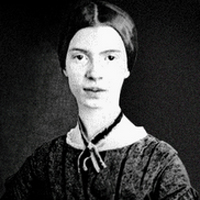Success is Counted Sweetest by Emily Dickinson: Summary and Analysis
Success is counted sweetest is a lyric poem of Emily Dickinson’s which was one of only seven published poems during her lifetime. It was written in 1859 and published anonymously in 1864 in the Brooklyn Daily Union. The uses of the images of a victorious army and one dying warrior cater the meaning that only one who has suffered defeat can understand the true value of success.

Emily Dickinson (1830-1886)
The poem unveils her keen consciousness of the intricate truths of human desire.
The speaker begins the poem with a message stating that those who never succeed that really crave success the most. Those who fail count the success sweet. To understand the sweetness of nectar, one must be thirsty. Without knowing what the thirst is, one cannot really understand the sweetness of nectar. Then the speaker provides us with the imagery of war. The victorious troops experience the glory of success, but they cannot tell you any clear and precise definition of what victory is. The one who is defeated and is on verge of death can tell you the definition of victory. He is agonized at his own defeat, but he alone knows clearly what triumph is.
Her theme was precisely the perception of value won through deprivation. It was not sight, she knew, that could be won out of blindness, but a full appreciation of the miraculousness and preciousness of sight. So to 'comprehend' a nectar, to 'tell the definition' of victory, one must suffer thirst and defeat. Generally, people tend to desire things more intensely when they do not have them.
The poem is built upon a paradox of success and defeat, the victor and the vanquished. While the victor experiences and basks in the glory of success, the vanquished clearly comprehends and can tell the definition of victory. One experiences its taste and the other knows its meaning. The imagery drawn from war is most appropriate to the paradox and to the theme of the poem.
Cite this Page!
Shrestha, Roma. "Success is Counted Sweetest by Emily Dickinson: Summary and Analysis." BachelorandMaster, 16 Nov. 2017, bachelorandmaster.com/britishandamericanpoetry/success-is-counted-sweetest-summary-analysis.html.
Related Topics
Much Madness is Divinest Sense: Analysis
Renunciation: Summary and Analysis
Because I could not Stop for Death: Analysis
I Heard a Fly Buzz: Summary and Analysis
After Great Pain, a Formal Feeling Comes: Analysis
I taste a liquor never brewed: Summary and Analysis
A Bird came down the Walk: Summary and Analysis
Hope is the Thing with Feathers: Analysis
I like to see it lap the Miles: Summary and Analysis
I had something that I called mine: Analysis
If I should Die: Summary and Analysis
I'm Nobody! Who are you?: Summary and Analysis
These are the days when the Birds come back
What Inn is this: Summary and Analysis
Exultation is the going: Summary and Analysis
Of Bronze-and Blaze: Summary and Analysis
A Clock Stopped: Summary and Analysis
I felt a Funeral, in my Brain: Summary and Analysis
Safe in their Alabaster Chambers: Analysis
There's a certain Slant of light: Summary and Analysis
To fight aloud, is very brave: Summary and Analysis
I like a look of Agony: Summary and Analysis
Bring me the sunset in a cup: Summary and Analysis
The day came slow-till Five o'clock: Analysis
 |
bachelorandmaster.com |